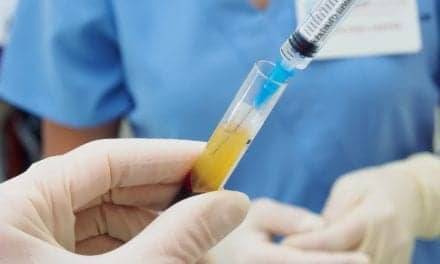02/28/07
A breath test can successfully pick up lung cancer with moderate accuracy even in the early stages, reveals research published ahead of print in Thorax. It could revolutionize the way cancer is detected and potentially save lives, say the authors.
The test comprises a chemical color sensor, which detects tiny changes in the unique chemical signature of the breath of people with lung cancer. Metabolic changes in lung cancer cells cause changes in the production and processing of volatile organic compounds, which are then breathed out.
Peter Mazzone, MD, Department of Pulmonary Allergy and Critical Care Medicine, The Cleveland Clinic, and a team of researchers used the color sensor to test the breath of 122 people with different types of respiratory disease, and 21 healthy people. Included in the group with respiratory illness were 49 people with small cell lung cancer at various stages of development.
The research team used the sensor results from 70% of the study participants to develop a predictive model, the accuracy of which was then tested on the remaining 30%. The results showed that the test was able to accurately predict the presence of cancer in just fewer than three out of four of those with lung cancer. The results were not affected by age, gender, or stage of disease.
Other approaches to breath testing have been used, say the authors. This includes gas chromatography, and mass spectrometry, which requires a great deal of expertise to use and is very expensive.
As cancer is often silent in its early stages and symptoms are often not specific, it is often difficult to pick up the disease at a stage when it could be treated effectively, say the authors. Diagnosis is often therefore only made when the disease is advanced.
“Ultimately, this line of investigation could lead to an inexpensive, non-invasive screening or diagnostic test for lung cancer,” the authors conclude.









